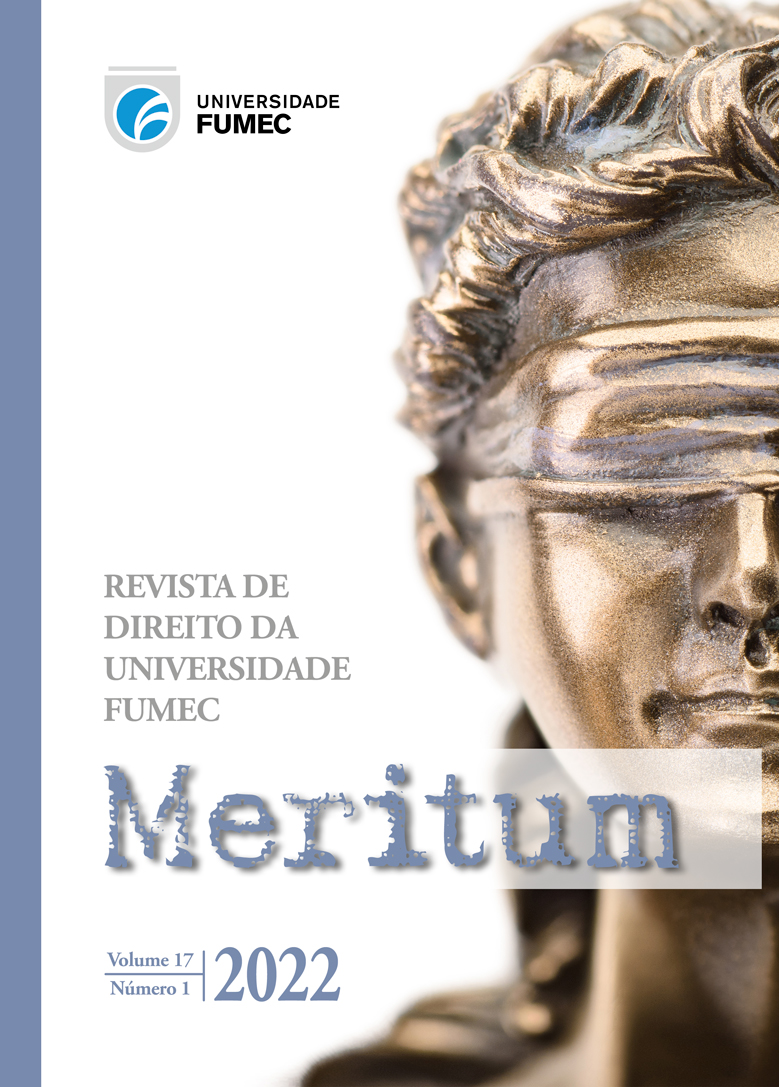MULTIPORT SYSTEM: WAYS OF ACCESS TO JUSTICE IN ADDRESSING GENDER VIOLENCE AND DOMESTIC VIOLENCE
VIAS DE ACESSO À JUSTIÇA NO ENFRENTAMENTO DA VIOLÊNCIA DE GÊNERO E VIOLÊNCIA DOMÉSTICA
DOI:
https://doi.org/10.46560/meritum.v17i1.8511Abstract
The main purpose of this article is to analyze women's historical evolution, with its social role and later, the help of some feminist movements, also verifying how the Multiport System of Justice, through alternative forms of conflict resolution, can help in the prevention and treatment of gender and domestic violence. The research problem is based on the following questions: Can the Multiport Justice System, through alternative forms of conflict resolution, assist in the treatment and prevention of domestic violence and gender-based violence? What are its limits and possibilities? Deductive and bibliographic methods are used as methodological procedures, with research in books and on the internet, which cover the topic in question. Finally, the article is divided into three points, in which the first reports a history of violence against women, while the second, exposes in a conceptual way the alternative forms of conflict resolution and the right of access to justice and, finally , an analysis is made of some forms of treatment and prevention of domestic and gender-based violence, using alternative forms. Thus, it is concluded at the end, that these can be used, but have some limits, and should be analyzed in each case.
Downloads
Published
Issue
Section
License
Autores que publicam nesta revista concordam com os seguintes termos:
- Autores mantém os direitos autorais e concedem à revista o direito de primeira publicação, com o trabalho simultaneamente licenciado sob a Licença Creative Commons Attribution que permite o compartilhamento do trabalho com reconhecimento da autoria e publicação inicial nesta revista;
- Autores têm autorização para assumir contratos adicionais separadamente, para distribuição não-exclusiva da versão do trabalho publicada nesta revista (ex.: publicar em repositório institucional ou como capítulo de livro), com reconhecimento de autoria e publicação inicial nesta revista;
- Autores têm permissão e são estimulados a publicar e distribuir seu trabalho online (ex.: em repositórios institucionais ou na sua página pessoal) a qualquer ponto antes ou durante o processo editorial, já que isso pode gerar alterações produtivas, bem como aumentar o impacto e a citação do trabalho publicado (Veja O Efeito do Acesso Livre).






